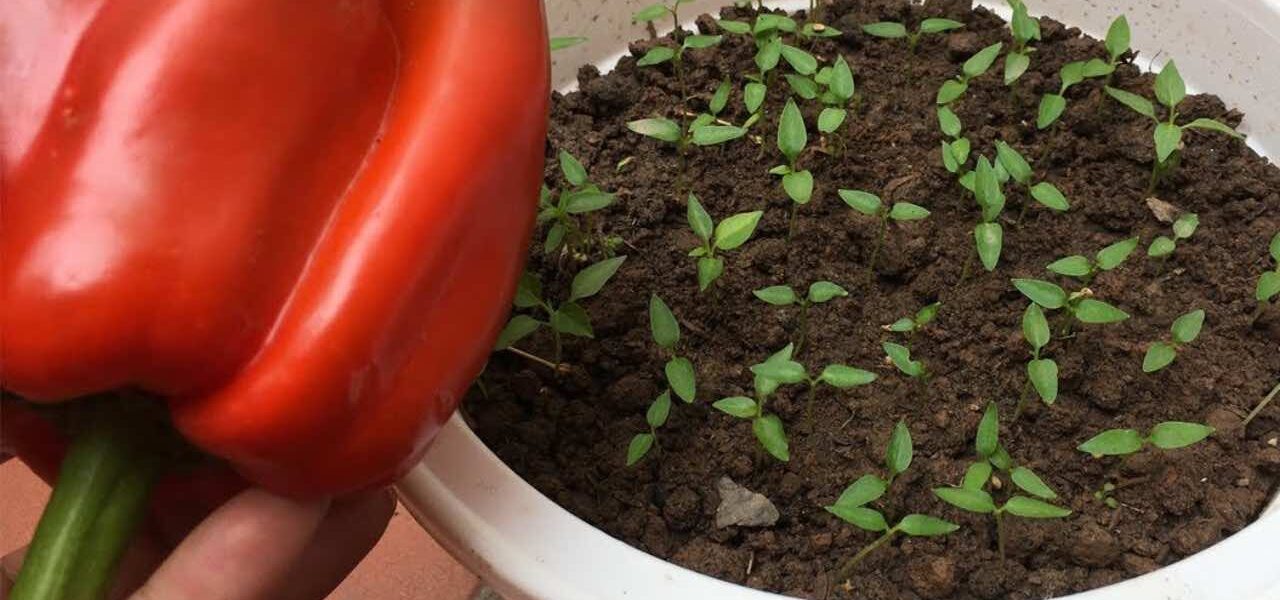How to grow peppers at home
How do you grow peppers at home and with minimum effort? Reveal the secret to bringing this vegetable to your table in abundance. Here are the tips you need to cherish.
User-friendly vegetable garden
It’s absolutely not true that to grow fruit and vegetables, you need to have many acres of land or a large garden available. Some plant varieties can grow very well even in an apartment or on the balcony of your home.
Balcony vegetable garden
Have you heard of the Chinese mandarin plant? It’s small, requires no special care and can give you juicy fruit even if you place it on the terrace or in a bright corner of your home.
Of course, there are also plants that require more space to grow, like tomatoes for example, which, depending on the variety, can even exceed a metre in height. In this case, it would be advisable to bury these plants in a fairly large garden or vegetable patch.
What about peppers instead? A vegetable beloved of Italians, they lend themselves to exquisite, healthy dishes. Did you know that you can also grow this plant at home? Here are all the tips you need for a healthy, abundant harvest.
How to grow peppers at home: the foolproof technique
Among the vegetables most consumed and appreciated by Italians, there are peppers that can also be grown at home, did you know? In fact, we’ll tell you even more: they’re among the easiest and most profitable crops in terms of yield, but only if you follow some precise rules.
Today, you’ll discover how to grow peppers at home, in no time and produce a bountiful harvest. We want to share with you the foolproof remedy that will bring plenty of peppers to your table.
To put this technique into practice, first buy a bell pepper from the greengrocer or supermarket. Cut it in half and collect all the seeds it contains.
Alternatively, you can buy bell pepper seeds directly from the store. In both cases, there’s no need to wait for the seeds to dry out, but you can sow them immediately.
Get a large pot and fill it with garden soil added with organic fertilizer such as chopped eggshells. Make sure the soil is sufficiently moist and well-drained, as peppers can’t stand standing water.
Now you’ll need to start spreading your pepper seeds in the soil you’ve put inside the pot and water them once a day: after 3 days, you’ll only start to notice small green shoots.
Don’t forget to place the pot containing the bell pepper seeds in a cool place, bright but not too bright, where the sun’s rays won’t hit the sprouts directly.
What happens after just 7 days is even more incredible: the seedlings will now have developed roots and be ready to grow again. So move the pot to a warm, bright spot, remembering to water the soil at least once a day, every day.
After 15 days from the first planting, you can add an organic or organic fertilizer to help the plants grow faster. If you want big, healthy peppers with brilliant natural coloring, you’ll always need to keep the plant in a sunny spot and water it daily.
If, on the other hand, there’s no sun, the plant will grow tall but weak and break easily, blocking bell pepper production. Pepper is a plant that needs a lot of nutrients, so don’t forget to fertilize it at least once every 15 days.
After 25 days, the plants will already be big enough to be pruned and planted in separate pots. Take as many (smaller) pots as there are seedlings to bury. Fill them with moist, fertilized soil, make furrows and bury your plants. Always water regularly, at least once a day. After a month, you’ll start to see the first colorful peppers on your plants!
Tips for a healthy, lush pepper plant
To have a pepper plant that gives you lots of fruit, you need to follow these tips.
Always remember that :
you need to water your bell pepper plants at least once a day, every day;
the best time to water is early in the morning;
The ideal temperature for growing peppers is between 21° and 32°.
If you follow our advice and put the technique we’ve explained into practice, you’ll have no problem: your bell pepper plants will grow strong and healthy, but above all you’ll have an organic and abundant harvest.
